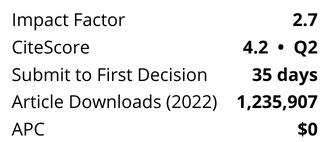A stable aerobic microbial consortium, established by successive subcultivation, was employed to solubilize the solid organic fraction in swine wastewater. In the 30 days' successive biological pretreatments, 30–38% of volatile solids and 19–28% total solids in raw slurry were solubilized after 10 hours at 37 °C. Meanwhile, soluble chemical oxygen demand (COD) and volatile fatty acid increased by 48%–56% and 600%–750%, respectively. Furthermore, the molecular microbial profile of the consortium in successive pretreatment was conducted by denaturing gradient gel electrophoresis (DGGE). The results indicated that bacterial species of the consortium rapidly overgrew the indigenous microbial community of raw water, and showed a stable predominance at the long-term treatment. As a consequence of biological pretreatment, pretreatment shortened digestion time by 50% and increased biogas production by 45% compared to raw water in the anaerobic process. The microbial consortium constructed herein is a potential candidate consortium for biological pretreatment of swine wastewater to enhance biogas production.
Skip Nav Destination
Article navigation
Research Article|
January 23 2015
Pretreatment of piggery wastewater by a stable constructed microbial consortium for improving the methane production
Jian Cai;
Jian Cai
1Institute of Environment Engineering and Science, College of Chemistry and Material Science, Key Laboratory of Catalysis and Material Science of the State Ethnic Affairs Commission & Ministry of Education, South-Central University for Nationalities, Wuhan 430074, Hubei, China
Search for other works by this author on:
Xiwei Mo;
Xiwei Mo
1Institute of Environment Engineering and Science, College of Chemistry and Material Science, Key Laboratory of Catalysis and Material Science of the State Ethnic Affairs Commission & Ministry of Education, South-Central University for Nationalities, Wuhan 430074, Hubei, China
Search for other works by this author on:
Guojun Cheng;
Guojun Cheng
2School of Life Science, South-Central University for Nationalities, Wuhan 430074, China
Search for other works by this author on:
Dongyun Du
1Institute of Environment Engineering and Science, College of Chemistry and Material Science, Key Laboratory of Catalysis and Material Science of the State Ethnic Affairs Commission & Ministry of Education, South-Central University for Nationalities, Wuhan 430074, Hubei, China
E-mail: dydu666@mail.scuec.edu.cn
Search for other works by this author on:
Water Sci Technol (2015) 71 (5): 769–775.
Article history
Received:
August 01 2014
Accepted:
January 06 2015
Citation
Jian Cai, Xiwei Mo, Guojun Cheng, Dongyun Du; Pretreatment of piggery wastewater by a stable constructed microbial consortium for improving the methane production. Water Sci Technol 1 March 2015; 71 (5): 769–775. doi: https://doi.org/10.2166/wst.2015.017
Download citation file:
Sign in
Don't already have an account? Register
Client Account
You could not be signed in. Please check your email address / username and password and try again.
Could not validate captcha. Please try again.
eBook
Pay-Per-View Access
$38.00




%20cropped.png?versionId=5945)